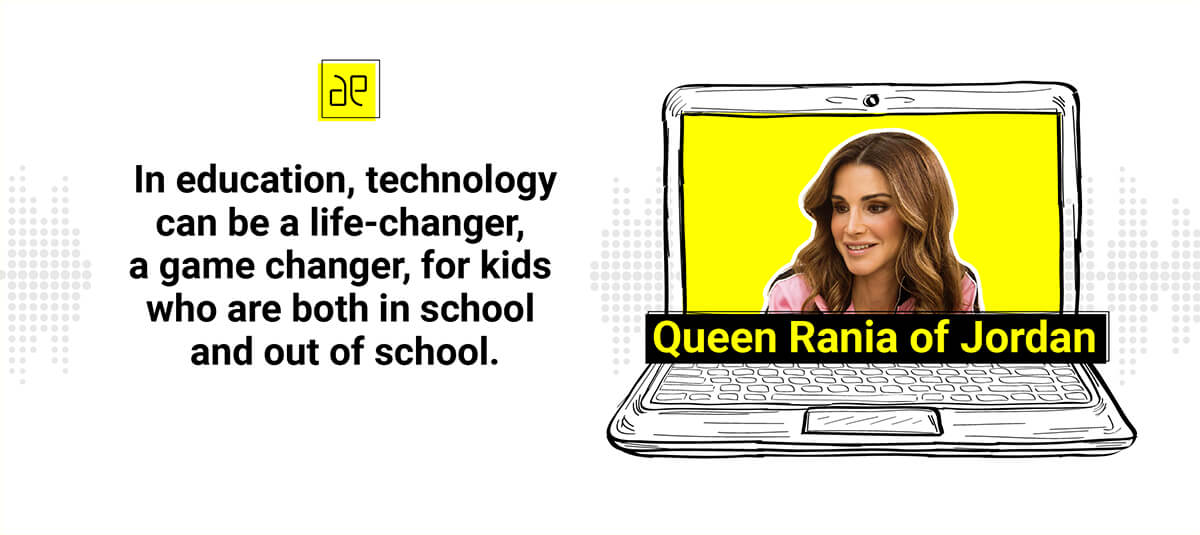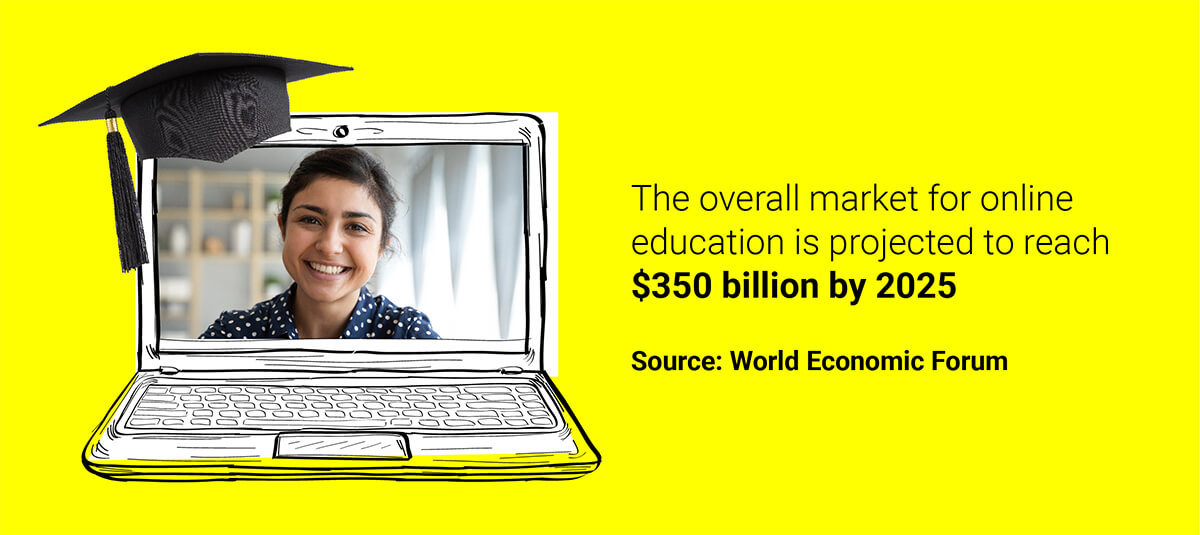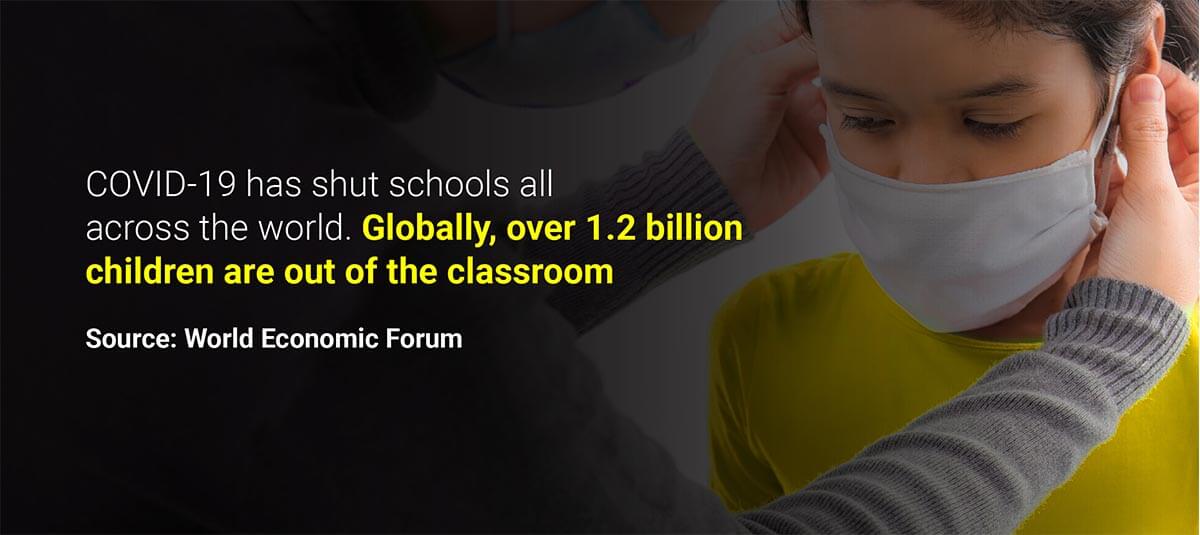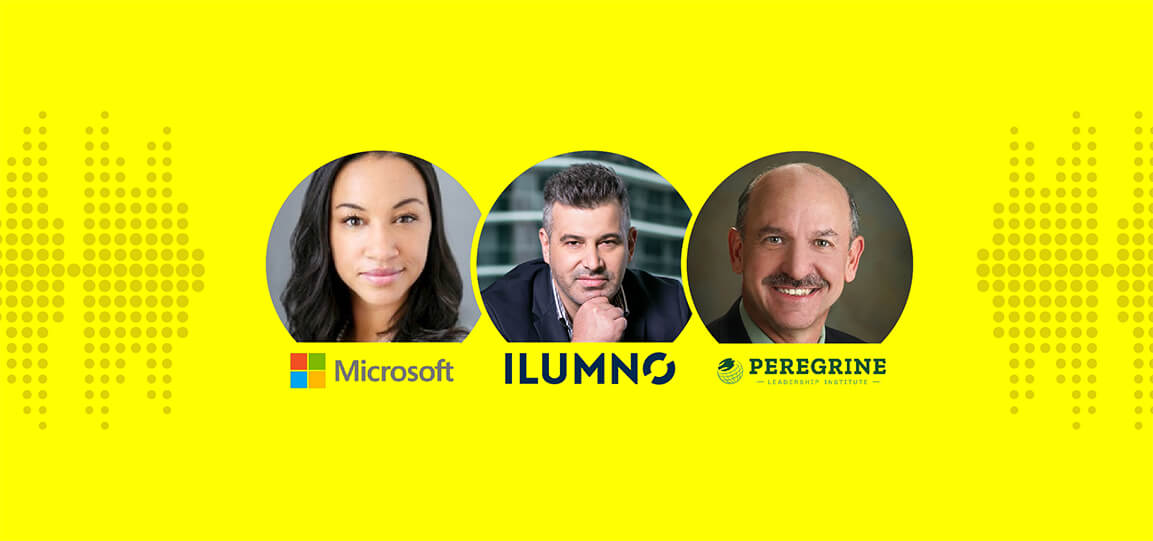It’s May 2020 and Nuno Fernandes’s six-year-old son – like most children around the world – is doing school online. As the CEO and President of Ilumno, a tech platform created to open up access to higher education in South America, his father has a special interest in how his teachers are managing the crossover from classroom to webcam. “Schools are doing the best they can for their students right now,” says Fernandez. “But most of them aren’t ready to provide online education. The modality of online education was started in the 90s, so it’s 30 years old. Modern online education is totally different. And COVID-19 has just put the evolution of online learning on steroids!”
“COVID has put the evolution of online learning on steroids!”
He prefers not to use the term “online education” when he talks about learning from home in its most modern and dynamic form: the way that top online educational institutions are doing it today. It harks back to a time when filming a lecture and sending the footage to your students was seen as brave innovation. Online learning is so much more than simple remote education, he says.
COVID-19: shining a spotlight on online learning 2.0?
In Latin America, in 2002, 20 percent of people who were eligible to go to university actually went. Last year it was 50 percent. “Online education has expanded access to higher education, transforming societies and giving families a better quality of life,” Fernandes says. Even in the US, 80 percent of people eligible to attend university are now doing so, while back in 2002, only 60 percent of people who could have pursued a higher education went down that path. According to Fernandes, the current global crisis is just accelerating a process that has been quietly growing behind the scenes for decades.

Olin Oedekoven is CEO of Peregrine, a global accreditation organization. For him, the COVID-19 crisis has brought both the potential and the pitfalls of online learning into sharp focus. “When people switch to online learning, they often try to replicate the process of classroom learning. Now they’re realizing it doesn’t work. The traditional model of getting something out of the teacher’s head into the students’ heads is not effective.”

“True online learning is about a collective learning experience,” he says. “Learners take ownership of their own learning process, share it with others, and collaborate. We can’t just lecture at students for an hour to teach concepts.” Oedekoven calls true online learning “discovery learning”, and through his wealth of experience with both campus-based and online universities, he’s seen what works, both for learners and the organizations that employ them after they graduate.
Coming soon: your AI personalized learning experience
It’s an undeniable fact that online learning fits the needs of a growing global workforce that must respond to constant change, says Lyndsey Craft-Goins, Director of the US Education Ecosystem at Microsoft. “The Institute for the Future says that 85 percent of the jobs available in 2030 do not yet exist.”
“Change is always going to be a constant, so adaptability is key.”
According to Craft-Goins, in 10 years’ time, artificial intelligence (AI) could hold the key to giving learners the skills they need to succeed in the workplace of the future, delivering truly personalized education that speaks to different learning styles. In one recent study at the Georgia Institute of Technology, students didn’t realize that a teaching assistant communicating with them online was actually a bot. In future years, AI looks set to do more than emulate a human teacher: it could outperform them. The highly personalized learning that a machine can give, as it ‘learns’ how a student learns then adapts its teaching content accordingly, could allow each learner their own path to graduation, agrees Fernandes.
Innovating, outperforming and blazing the trail
Peregrine has data that compares the performance of graduates from online and offline universities. Since its inception, the company has administered 1.5 million exams to graduates worldwide. “The punchline is that the online students outperformed campus-based students in all 17 subjects we tested at Master’s level. The Bachelors was a bit tighter: in 15 subjects the online students outperformed their counterparts. My conclusion is that online is just as good, if not better, than a traditional university.”

Fernandes, too, sees online students perform better on exit exams. He cites a study where 61 percent of HR directors preferred to recruit online students because they have competencies they see as valuable: traits that are harder to find in graduates from campus-based universities. “The only difference between online and offline is the modality of delivery,” he says. “A quality institution will deliver quality learning, whether that’s online or offline.”
Oedekoven was already seeing more universities evolve from the traditional lecture and take notes model before the COVID-19 crisis. “Now they’re realizing more than ever that the old model wasn’t effective,” he says. “When they return, they’re going to foster a learning process that gets students engaged. This could be a good thing for purely online universities because traditional universities might produce great content that they share. They’ve seen now that there’s a better way to learn than talking at people: whether that’s in a lecture theatre, or through Zoom, there’s no going back.
“When I hire people to work at Peregrine, I look at the skills that they have and the traits they’ll bring to the workplace. And I see those skills and traits in people who’ve got their qualifications online just as much as I see them in people who’ve done it the traditional way.”
Subscribe to our newsletter
Don't miss out on our latest updates.
Unlock Your Potential: Explore Our Programs
Invest in yourself and your future. Discover our range of degrees, courses, and certificates to achieve your goal







